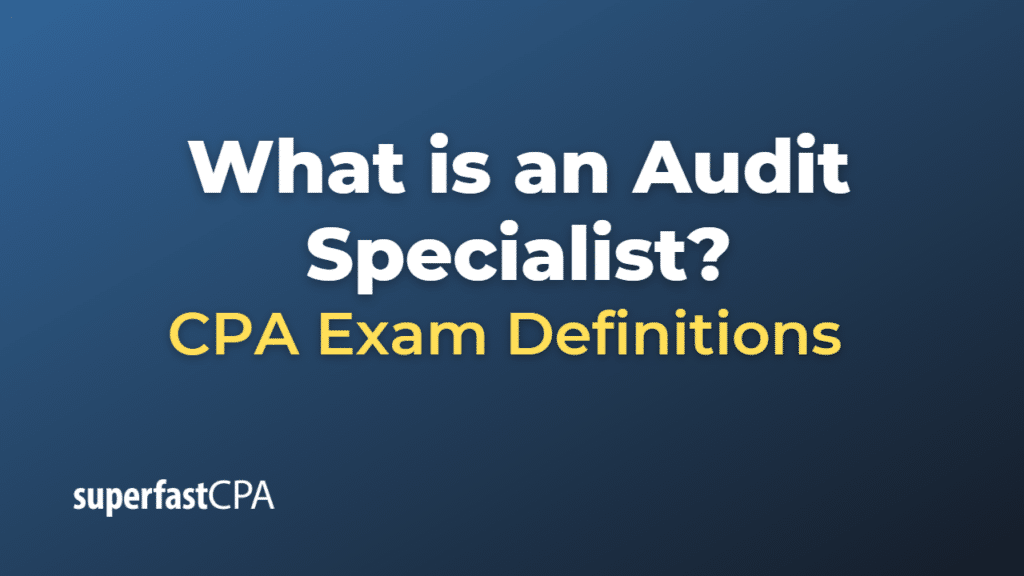Audit Specialist
An audit specialist is an individual with specialized knowledge, skills, or expertise in a specific area that is relevant to the audit process. This person assists auditors in understanding complex subject matter, analyzing unique transactions, or evaluating specialized risks. Audit specialists can be internal or external to the audit firm, and they may be employed on an ad-hoc basis to provide their expertise when needed during an audit engagement.
Some common areas where audit specialists may be employed include:
- Information technology: IT specialists help auditors evaluate the design and effectiveness of an organization’s IT systems, data security measures, and internal controls related to IT.
- Valuation: Valuation specialists help auditors assess the fair value of complex financial instruments, intangible assets, or other items that require specialized knowledge to determine their appropriate value.
- Taxation: Tax specialists assist auditors in understanding and evaluating an organization’s tax compliance, tax strategies, and potential tax risks.
- Industry-specific knowledge: In certain industries, such as banking, insurance, or oil and gas, audit specialists may have deep knowledge of specific regulations, accounting practices, or risks unique to that industry.
- Forensic accounting: Forensic accounting specialists may be engaged to help auditors investigate potential fraud, misconduct, or other financial irregularities.
By working with audit specialists, auditors can obtain a more comprehensive understanding of an organization’s financial reporting, internal controls, and potential risks, ultimately enhancing the quality and effectiveness of the audit.
Example of an Audit Specialist
Let’s consider an example where an audit specialist is engaged to help with the valuation of complex financial instruments.
Company ABC is a publicly-traded company that deals with a variety of complex financial instruments, including derivatives and options. During the audit process, the auditor needs to verify the fair value of these instruments reported in the financial statements.
However, the auditor lacks the specialized knowledge and expertise to accurately assess the valuation of these complex instruments. To address this issue, the auditor engages a valuation specialist with expertise in financial instrument valuation.
The valuation specialist reviews the company’s valuation models, inputs, assumptions, and methodologies used to determine the fair value of these financial instruments. The specialist also analyzes market data and compares the company’s valuation methods with industry best practices.
After completing their analysis, the valuation specialist provides the auditor with a detailed report that outlines their findings, including any discrepancies or concerns identified during the review process.
In this example, the valuation specialist’s expertise helps the auditor to obtain a better understanding of the company’s valuation of complex financial instruments, which ultimately contributes to a higher quality audit and greater assurance for users of the financial statements.













